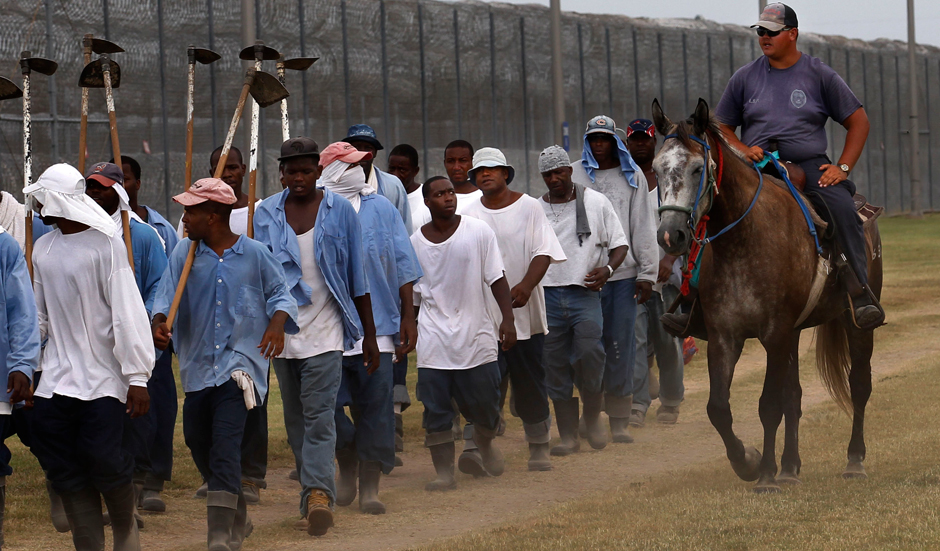At Sustainable Action Now, we fight for justice—not just for animals and the environment, but for every system that perpetuates inequality and exploitation. In Louisiana, a grim story is unfolding that’s more than a civil rights issue—it’s a humanitarian crisis tangled in history, policy, and profit. The practice of forced prison labor at Angola Prison and the distorted political power structures enabled by federal census policy paint a picture of systemic failure. But this is not just a story of injustice—it’s a call for action.
⚖️ How the Census is Failing Louisiana’s Democracy
The U.S. Census is meant to be a tool of fair representation—a count of people to guide power. But in Louisiana, it’s being weaponized to undermine democracy. The root issue? Prison gerrymandering.
During the 2020 Census, incarcerated individuals—many of whom are from urban areas—were counted not in their home communities but in the rural parishes where they’re imprisoned. This misrepresentation inflates the political influence of those rural districts while silencing the communities where most incarcerated individuals actually come from.
This distorted data directly affects redistricting and dilutes the political power of Black and low-income communities—many of which are disproportionately impacted by mass incarceration. It’s a systemic form of disenfranchisement that echoes the legacy of segregation and voter suppression.
But Louisiana lawmakers can fix it. The state has the opportunity to pass legislation ensuring that in 2030, incarcerated people are counted where they lived before their incarceration. Several other states have already taken this step. It’s not radical—it’s fair.
Reform starts by acknowledging the problem. From there, we must demand structural change. Our Rescue Network isn’t just about saving lives—it’s about liberating them from unjust systems, too.
🧱 Angola Prison: A Plantation Reborn as a Prison Farm
The Louisiana State Penitentiary—known infamously as Angola—is more than a prison. It’s a haunting symbol of America’s enduring legacy of slavery. Built on the grounds of a former slave plantation, Angola has been dubbed “The Alcatraz of the South,” “The Angola Plantation,” and simply “The Farm.” These nicknames aren’t exaggerated—they’re disturbingly accurate.
A Legacy of Oppression
Before the Civil War, enslaved people, including pregnant women and children, were forced to work Angola’s cotton fields. After emancipation, the 13th Amendment legalized the exploitation of incarcerated labor, and Angola transformed into a penal system that, in practice, continued slavery by another name.
Today, the prison is home to mostly Black men, many serving life sentences under some of the harshest sentencing laws in the country. And the fields? They still grow cotton.
Modern-Day Slavery on the Farm Line
Angola’s “farm line” requires incarcerated individuals to labor under the sweltering Louisiana sun, picking crops for little to no pay. Some earn as little as two cents an hour. They work in brutal conditions—scorching heat, insufficient water, minimal rest. Missing quotas or resisting work can result in punishment, solitary confinement, or denial of privileges, according to the ACLU of Louisiana.
This isn’t rehabilitation. It’s exploitation. And it’s not just wrong—it’s unconstitutional.
A class-action lawsuit filed by current and former inmates alleges that Angola’s labor practices violate their civil and human rights. Many civil rights organizations have labeled these conditions as modern-day slavery, and they’re right. This system was built to preserve profit, not to rehabilitate.
💰 Profit vs. Rehabilitation: What’s Really Driving the System?
Supporters of prison labor—often led by Prison Enterprises, the for-profit arm of the Louisiana Department of Corrections—argue that work builds discipline, teaches skills, and helps offset incarceration costs. But critics rightly point out that these “skills” often do not translate into real job opportunities after release.
What Angola truly represents is a system that values profit over people—a continuation of centuries-old racial and economic oppression. The prison’s agricultural output is significant, but at what ethical cost?
When inmates work fields that once enslaved their ancestors, for pennies on the dollar, while the state reaps profits, we must ask: who really benefits?
📢 Where Do We Go From Here?
Reforming Louisiana’s broken systems requires a dual approach:
- Fix the Census Problem: State lawmakers must pass legislation to count incarcerated people in their home communities in future censuses. It’s essential to ensure fair representation and equity in redistricting.
- End Exploitative Prison Labor: Angola’s use of forced farm labor should not exist in a just society. Incarcerated individuals deserve access to education, rehabilitation programs, and fair wages—not rebranded slavery.
And at Sustainable Action Now, we believe change happens when we unite. Through our Rescue Network, we’re amplifying stories like these—not just of animals in crisis, but humans trapped in inhumane systems.
🛠️ Take Sustainable Action Now
- Raise Your Voice: Demand that Louisiana end prison gerrymandering and count incarcerated individuals fairly.
- Support Prison Labor Reform: Call for transparency and legislation that protects incarcerated workers’ rights and eliminates exploitative labor.
- Educate and Advocate: Share this story. Talk about Angola. Talk about the Census. These systems thrive in silence.
- Join the Fight: Get involved with our Rescue Network. Whether it’s through donations, advocacy, or simply staying informed, your action matters.
✊🏽 Justice Is Sustainable Only When It’s Shared
The battle for a sustainable future isn’t just about emissions or endangered species—it’s about dismantling the systems that exploit life, period. From census manipulation to forced labor, Louisiana stands at a crossroads. We can continue the legacy of oppression, or we can break the cycle.
Sustainable Action Now is committed to the latter. The question is—are you with us?
Join the Rescue Network →
Because justice delayed is justice denied.


